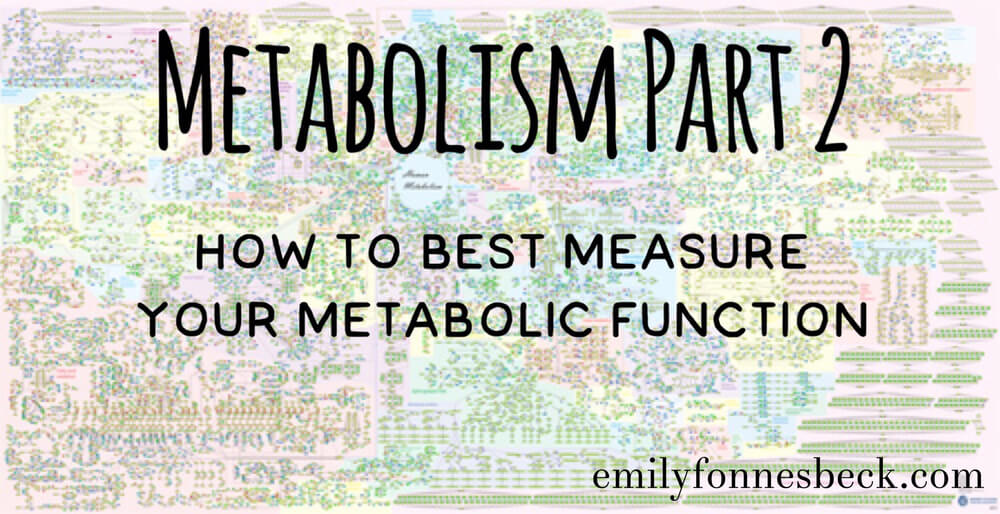A little while ago, I wrote a blog post called Metabolism 101. The feedback was phenomenal and I am so glad so many of you have found it helpful. I would like to continue that discussion today with Metabolism Part 2.
 Photo Credit – Map of Human Metabolism
Photo Credit – Map of Human Metabolism
As discussed in Metabolism 101 (which I encourage you to read first if you haven’t already), your metabolism is much bigger than just your propensity toward changes in weight. It is the totality of all your body process; in fact the definition is: “the chemical processes that occur within a living organism in order to maintain life.” Your body wants very much to maintain life, in fact survival is it’s #1 goal. In order to support all these chemical process, we need to fuel our metabolism.
A basic tenant of chemistry is “the more you put in, the more you get out”. This is of course referring to a chemical reaction – you can’t expect to get more product if you have put in less reactant. You can’t expect to have a higher metabolic output if you don’t fuel your body processes. We tend to want to measure metabolic output in numbers, by weight loss or how someone looks. However, the best way to know if your adequately fueling your body processes is how you FEEL.
Physical symptoms such as digestive concerns, irregular sleep, fatigue, headaches, hormonal imbalances, poor immunity etc…could be signs of a metabolism functioning below it’s full potential. I’m treading really lightly here given that “metabolic issue” is a very loose diagnosis and any of these concerns may need more thorough exploration (and an accurate diagnosis). However, every body process will function better with consistent and adequate nutrition. If your eating habits are irregular, haphazard and inconsistent, your body process will be as well.
Here’s the point: we often approach our health, our bodies or our weight as though we are broken and need to be fixed. What if we switched our focus from how to lose weight or change our size/shape to how we could best support our body processes (our metabolism). In doing so, you will likely find that you FEEL better and that your metabolic output increases. You won’t need to measure it to know it increased, you’ll be able to feel an increase in health and well-being, which is the best indicator of a metabolism that is functioning at it’s full potential. Your metabolism is very much tied to your genetics and gene expression and is therefore very unique to you. That’s really difficult to measure. The good news is, your body is always communicating it’s needs to you and you can respond effectively without any special equipment or fancy measurements.
Working with a Registered Dietitian who’s aim is to help you understand your unique metabolism and FEEL your best can really help you in this process. Adequate metabolic fuel is qualitative and quantitative and he or she can ensure you are getting both. Variety, balance and moderation are important aspects of an overall dietary pattern that supports both mental and physical health. Dietitians are trained to provide recommendations that achieves those. Unfortunately, it seems to be much more trendy to be more restrictive in order to get faster or more dramatic results. Please understand that those methods go contrary to all we have discussed in terms of metabolic function, setting realistic, sustainable food patterns and establishing a healthy relationship with food. It’s very well established that diets don’t lead to long term success and are actually only making us fatter. But I definitely don’t think that’s the worst casualty – we also lose all trust in our own ability to listen and learn from the feedback our body provides, which is key to knowing how YOUR metabolism is functioning. Slow and steady really does win the race. A body that feels well taken care of is really resilient, and able to support all metabolic functions for living your healthiest and happiest life.
I hope this has been helpful in understanding what metabolism is, what it isn’t and how you can truly support your own health and wellbeing.
Emily Fonnesbeck RD, CD
